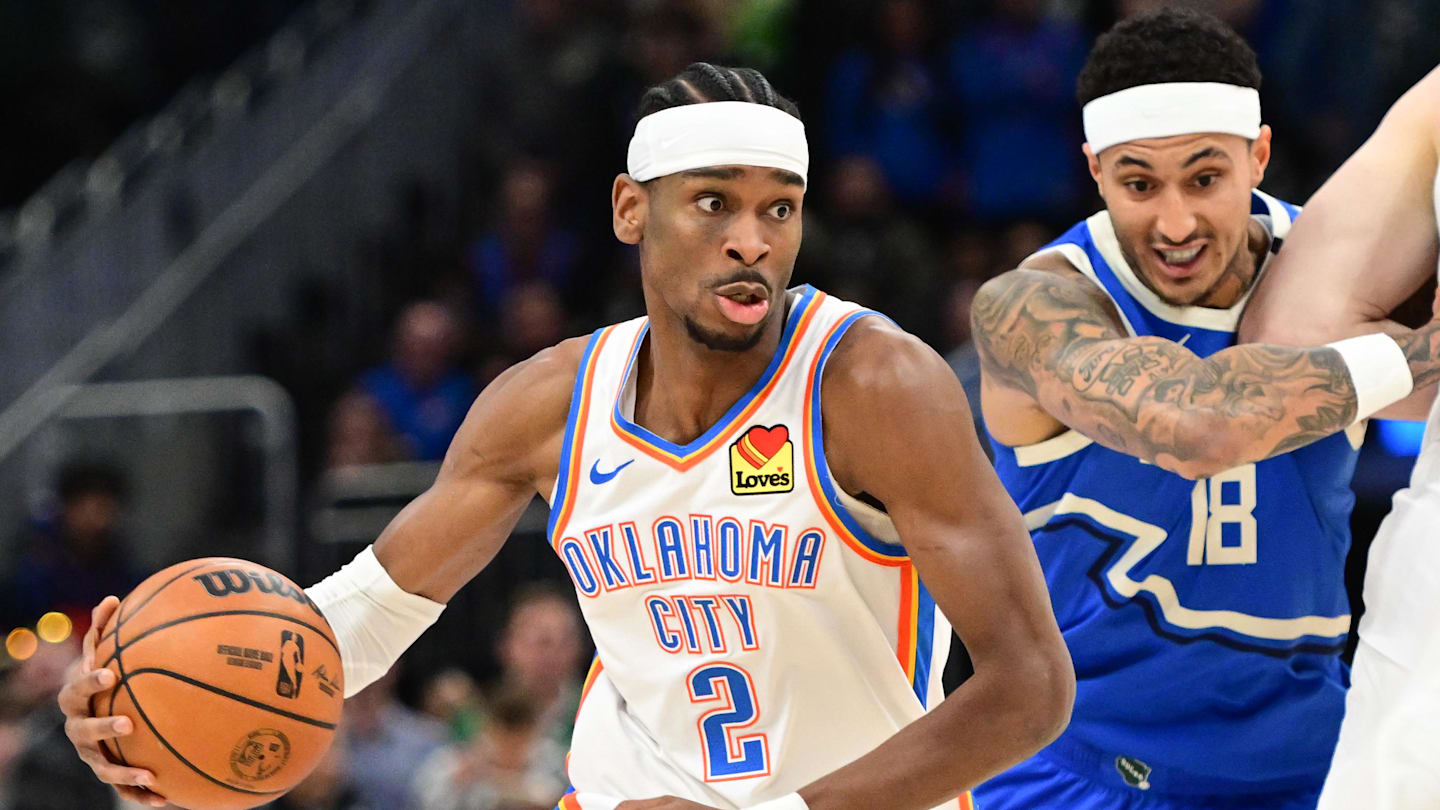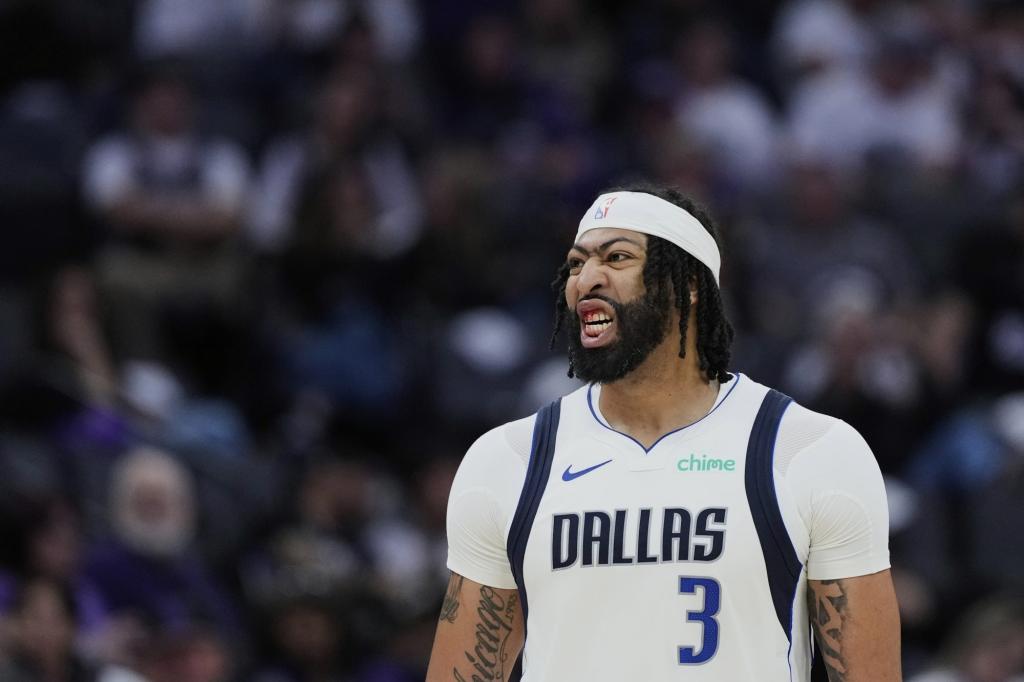For the umpteenth year (10 … 15 … I don’t know anymore), I’m honored to be among the NBA’s postseason award voters, which means I get to weigh in on the (Kia) Most Valuable Player, the (Kia) Coach of the Year and the (Kia) Most Improved Player awards. Some years I think the NBA just wants me to buy a Kia.
This year’s ballot unquestionably offered some hard choices. There’s MVP (more on that below), Most Improved (I hate the lack of consensus on who should be eligible) and the Clutch Award, which, frankly, I wouldn’t mind if the league scrubbed out of existence. My ballot was filed by 6 p.m. Tuesday (no warnings needed, NBA PR man Mark Broussard). Here’s what it looked like.
- Shai Gilgeous-Alexander, Oklahoma City Thunder
- Nikola Jokic, Denver Nuggets
- Giannis Antetokounmpo, Milwaukee Bucks
- Jayson Tatum, Boston Celtics
- LeBron James, Los Angeles Lakers
The NBA’s highest individual honor was a two-man race for months. Gilgeous-Alexander has been awesome (an NBA-best 32.7 points per game) for the unsurprisingly awesome Thunder, while Jokic, incredibly, has put up numbers comparable to or even better than in his three MVP seasons. Jokic averaged a triple double, joining Oscar Robertson and Russell Westbrook and becoming the first center to do it. I know it’s lost a little sizzle since Westbrook did it three times but, come on—average a triple double? No player dominates the offensive end like Jokic. He’s basketball’s Leonard Bernstein, masterfully orchestrating the Nuggets’ offense.
So why Gilgeous-Alexander? A couple of reasons. As ridiculous as Jokic’s numbers are, SGA’s are pretty damn good, too. Nearly 33 points, 51.9% shooting, 37.5% from three, 6.4 assists, five rebounds. He led the NBA in wins shares—best since Steph Curry’s 2015–16 MVP year—and has the lowest turnover percentage of any player with his usage rate or higher in the last 20 seasons. Yeah he gets to the free throw line a ton, but if you remove everyone’s free throws Gilgeous-Alexander would still lead the league in scoring.
Then there is the defense. Lu Dort is the leader of Oklahoma City’s top-ranked D, while Alex Caruso has generated plenty of I didn’t know he could do that reactions from Thunder officials this season. There’s also Jalen Williams, Cason Wallace, Isaiah Hartenstein … you get the idea.
But SGA is a defensive stud. He’s 6′ 6″ with quick feet and a 6′ 11″ wingspan and can deploy all of these tools across multiple positions. He led the NBA in defensive win shares, ranked top five in steals and finished in the top 25 in blocks. Of regulars, defined as players who play at least 24 minutes per game, Gilgeous-Alexander is fifth in defensive rating. I’m not going to Jokic bash, but no one would say he’s in Gilgeous-Alexander’s league defensively.
If there’s a tiebreaker, it’s winning. Most Valuable Player has always been a nebulous term; there’s a growing faction of people who think the NBA should embrace football’s awards format and honor offensive/defensive players of the year and an MVP. But winning is baked into the criteria—an overwhelming number of MVPs have come from teams at the top of their respective standings.
SGA’s team wins. Oklahoma City won an NBA-best 68 games this season, a franchise record—a Thunder and Sonics franchise record, for those who still connect the team to its Seattle days. I mean Oklahoma City was really good. They won 50 games before anyone else in the conference won 40 and had the top seed wrapped up by St. Patrick’s Day. You can certainly argue—and many will—that Jokic deserves more credit for dragging Denver to a 50-win season, but I’m going with that 18-win difference.
A tip of the cap to the second tier, too. I marvel at Antetokounmpo’s ability to dominate despite zero interest in developing a three-point shot. Tatum is knocking on the door of his first MVP. James just edged Donovan Mitchell on my ballot for his two-way play on a team that powered through a midseason roster reconstruction to finish third in the West. So, yes, on my ballot at least, James, at 40, finishes top five in MVP. Yeesh.
- Stephon Castle, San Antonio Spurs
- Zaccharie Risacher, Atlanta Hawks
- Alex Sarr, Washington Wizards
Not exactly a standout year for rookies, though Castle’s emergence as a formidable two-way player has to have San Antonio excited. Castle checked a lot of boxes. He led all rookies in points, field goals attempted and made, free throws attempted and made, and total steals, while ranking second in total minutes and fourth in assists per game. His numbers skyrocketed in the second half of the season, when Castle seized on an opportunity presented by Victor Wembanyama’s injury.
Like Castle, Risacher surged in the second half. He could turn out to be the best player in this draft. Sarr put up excellent numbers on a Wizards team going nowhere, but knocking down 100 threes while blocking 100 shots is something. I’m eager to see what Sarr will look like if/when he gets his three-point percentage into the mid-30s.

- Kenny Atkinson, Cleveland Cavaliers
- J.B. Bickerstaff, Detroit Pistons
- Ime Udoka, Houston Rockets
At midseason, this vote probably would have been unanimous. It’s still likely to be lopsided, but the stunning surge from Detroit—from 14 wins last season to 44 in this one—pushed Bickerstaff into the mix and Udoka’s magic in Houston helped elevate the Rockets from the lottery last year to the No. 2 seed in the West.
Still, Atkinson should run away with it. Atkinson was hired with a mandate: Develop Evan Mobley, which he has, transforming Mobley into a more fully developed offensive player. That evolution has powered the Cavs from 16th to first in offensive rating while maintaining a top-10 defense. Quite literally, every button Atkinson has pushed this season has worked.
- Ivica Zubac, Los Angeles Clippers
- Dyson Daniels, Atlanta Hawks
- Christian Braun, Denver Nuggets
Let’s get this out of the way: I didn’t vote for Cade Cunningham for the same reason I didn’t vote for Ja Morant in 2022 or Brandon Ingram in ’20: I don’t think high draft picks should be eligible for this award. To me, MIP is for a player who does something you didn’t see coming or took a leap no one expected. Cunningham has been outstanding this season. But he’s an ex-No. 1 pick who averaged 22.7 points and 7.5 assists last season. He’s supposed to be this good.
Eight years in I thought I’d seen what Zubac is: A reliable, double double-ish pivot who will shoot 60-plus percent from the floor and block some shots on the other. Well … about that. Zubac has gone bonkers this season. His scoring is up five points from last season (16.8 per game). He’s pulling monster rebounding numbers (12.5). He’s a beast in the post, averaging 1.06 points per possession, per NBA.com. That’s Jokic and Joel Embiid territory. He drew the second-most double teams in the league and was frighteningly efficient in pick-and-roll action and at the rim.

Defensively, he’s been better. Some numbers, courtesy of the Clippers: Zubac led the NBA in total rebounds, is third in defensive win shares and has a plus-minus in the top 10. Among players averaging at least 30 minutes, Zubac is fourth in defensive estimated plus-minus. Zubac has never been an All-Star. This year he’s a candidate for All-NBA. Credit to Zubac for improving this late in the game. And credit to Clippers assistant Jay Larranaga, who has worked closely with Zubac since joining Ty Lue’s staff in 2021.
Daniels ran with more opportunity in Atlanta, nearly tripling his scoring average and leading the league in steals. Braun, meanwhile, stepped right into the slot vacated by Kentavious Caldwell-Pope, doubling his scoring average while flirting with a KCP-esque 40% from three.
- Payton Pritchard, Boston Celtics
- Malik Beasley, Detroit Pistons
- Ty Jerome, Cleveland Cavaliers
Pritchard three-point bombed his way to this award, knocking down 246 triples off the bench—most in the NBA. He also had the most bench points (1,079), highest plus-minus (+428) and more 20-point games (23) than any reserve. It’s hard to believe that as recently as two years ago Pritchard had a hard time cracking Boston’s rotation.
Beasley was a huge pickup for Detroit, providing much-needed floor spacing around Cunningham, and Jerome edged Naz Reid for third on my ballot. But this is Pritchard’s award to lose.
- Evan Mobley, Cleveland Cavaliers
- Ivica Zubac, Los Angeles Clippers
- Draymond Green, Golden State Warriors
Wembanyama’s injury was a bummer, but it opened up a DPOY race he figures to have locked down for, oh, the next decade or so. Mobley, at least in my estimation, took the most advantage. Mobley has ridiculous physical tools; height, length, agility, all of which enable him to be the league’s most versatile defender. He defends without fouling, swats shots on ball and from the weak side and gobbles up rebounds. As Mitchell put it, “When you have a guy that can protect the rim, can help a side defender, can guard isolation, can guard pick-and-roll, that’s what makes him the defensive player of the year.”
I agree. I was all over the place on the last two slots. I discussed Zubac’s credentials earlier—he anchored a top-three defense—and while I was never fully on board with the Green campaign, he’s the do-everything defender for a team that was first in defensive rating after the All-Star break. That counts.
Amen Thompson was a tough omission. He’s an off-the-chart athlete who can guard four positions, though there are times I’m not sure he’s the best defender on his own team (Dillon Brooks, who should make an All-Defense team, remains elite). My guess is this will be the last time I don’t have Thompson in the top three.
- Nikola Jokic, Denver Nuggets
- Jalen Brunson, New York Knicks
- Stephen Curry, Golden State Warriors
Coin flip for me between Jokic and Brunson. Brunson had an absurd usage rate (42.4), scored more (5.6 points during “clutch” situations, defined as when the score is within five points with five minutes to play) and made more shots to tie or take the lead (14) than any other player. And these are often hard shots, with Brunson iso-ing on a bigger, longer wing and scoring over them. Impressive.
Why Jokic? Beyond the similarly eye-catching numbers (56.2% shooting, more shots to tie or take the lead in the final five minutes), Jokic often orchestrated Denver’s entire offense. He led all contenders in assists (1.1) and got to the free throw line roughly as often as Brunson. Denver had a plus-20 net rating with him on the court in clutch games, with Jokic pulling a 63.8 true shooting percentage. Between these two, there is no wrong answer.

